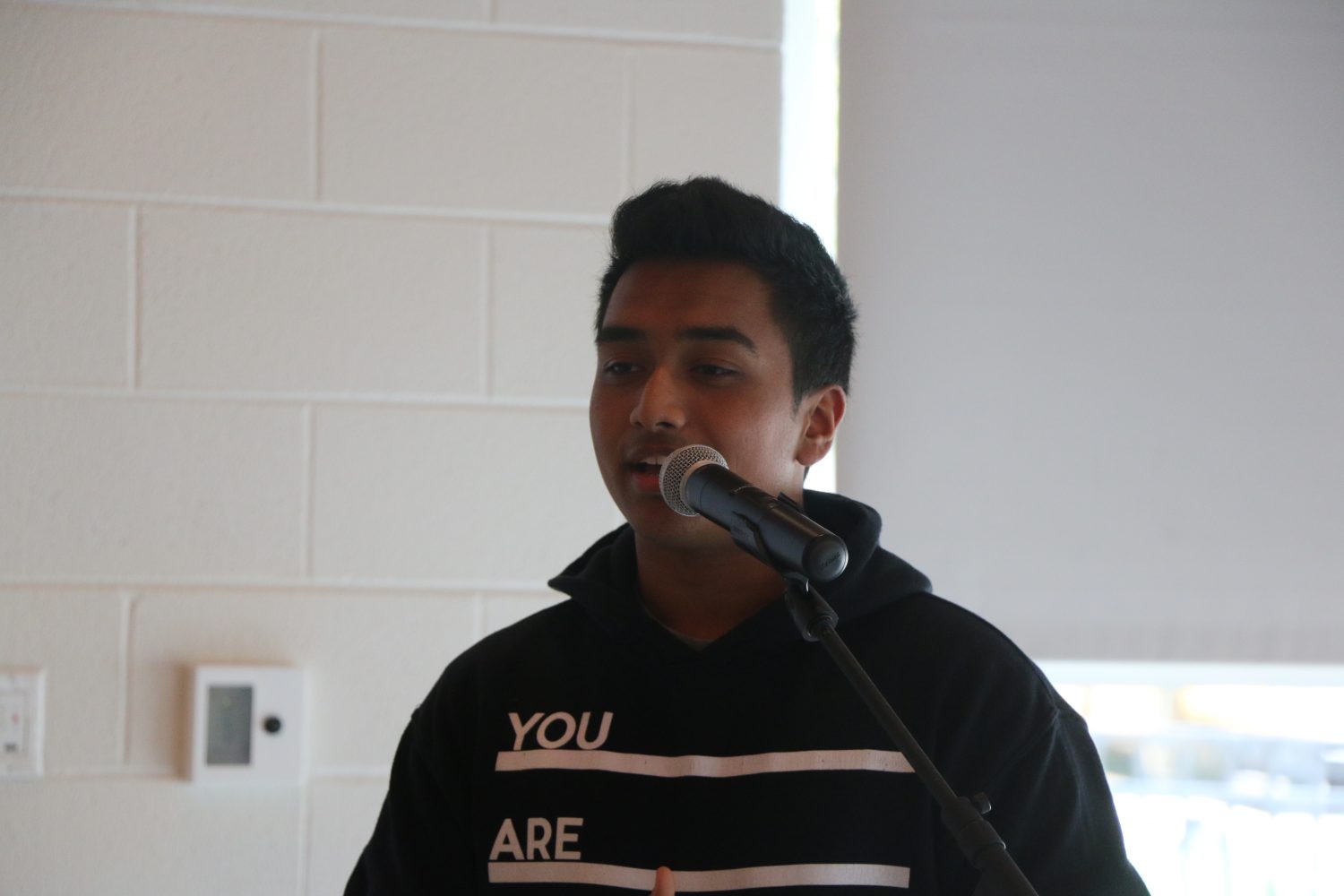Niles West hosted a student forum on Wednesday, May 3 in the wake of the recent events at Niles West and Niles North following the Stand Against Racism event last Friday, April 28.
The event aimed to increase student input following the student-organized walk-out at Niles North and the attempted protest at Niles West. Going into the forum, the goal was to allow students an opportunity to “speak their truths” about their experiences at Niles West in an effort to increase student voice. The forum was moderated by student activities director Katie Odell, principal Jason Ness and director of physical welfare Joaquin Stephenson.
The forum provided some “essential questions” for speakers to build their responses off of, including “what, wait?” to seek clarification, “I wonder why?” to address issues in the present, and “I wonder if?” to offer possible solutions for the future.
The school administration came in to the event recognizing that there is room for improvement in our school.
“We do a lot of things right, but there’s a lot of things we can do better,” Ness said.
Some students took the forum as an opportunity to call for greater education among students about the reality of racism in the real world.
“I feel like a lot of students at Niles West are ignorant towards the situation with racism that goes on in the outside world,” sophomore Angelique Guerrier said. “And I feel like you can’t control what [the students] here learn outside of school or what their parents teach them, so at school is should be a stronger topic [what’s going on in the outside world].”
Other students voiced their feelings on the lack of diversity in many of the highest level classes at Niles West.
“I think that there’s a lot of diversity, like especially in AP classes and other high level courses, but it’s not like there’s a lot of minorities [in those classes] that are very visible,” senior Subbi Namakula said. “It’s not like minorities are inherently less smart, it’s just that they don’t have the access to stuff like that. I think that should be addressed.”
The lack of representation of minorities within different classes was a topic that many other students brought up in their speeches, as well.
“Something that I feel like is probably a problem is something that other people were saying about diversity. I guess saying that we’re a diverse school is correct, but our classes are not,” sophomore Anna Donada said. “Most of my classes are predominantly white, and having that does not make it that comfortable for me. I’m half white, and it’s just doesn’t feel like it is the whole school being represented in [those classes], only one opinion [is being represented]. What can we do to change that and have opportunities for everyone else and not just having classes separated, even thought it’s not meant to be, it just ends up being that way?”
Sophomore Aryeal Taylor spoke about situations at school that have made her uncomfortable, including the poor representation of other African-Americans and the use of the n-word by other, predominantly white, students.
“I feel like people in this school, because it’s a predominantly white school, I feel like more white people use [the n-word] than us black people,” Taylor said. “The context [white people] use it in just doesn’t make sense. Why do people have to use that word over any other word to call somebody ‘bro’? Why do you have to say that to get your point across?”
Speaking about confronting classmates making Islamophobic jokes, sophomore Bajeel Syeda voiced her frustrations at the reaction and ignorance of other students and gave ideas about the type of education students should be given on race and religion in school.
“The one response I got from [Islamophobic students] was, ‘can you not take a joke?’, like I was just overreacting to something that was actually a big deal. I feel like other people around the school look at me; I can see them just judging me,” she said. “I feel like what the school should do it talk to them and make [the students] see why saying those things in that way is not good, and how that can harm other people.”
Junior Shebin Chacko shared his hopes for the future of Niles West.
“I personally believe that a big thing that comes up is conforming to the society around you. A lot of the times, for me personally, I feel like students aren’t expressing themselves,” Chacko said. “My vision for Niles West next year is just for us not to be conformed to society and to express ourselves in whatever way we feel.”
Ness wrapped up the forum by expressing the administration’s intent to continue making an effort to include more opportunities for student voice within the school improvement process.
“Hearing these things, I do want our students to know that this is something that we made a concerted effort [for]. We wanted to recognize a lot of the things that you’re talking about and there are things we are trying to incorporate to make things better,” Ness said. “If you just look at school improvement, including our students within our school improvement teams is a good way to improve the school. This year, we’ve started including students working with teachers, working with administrators, including their experiences and how we can do things here better.”


